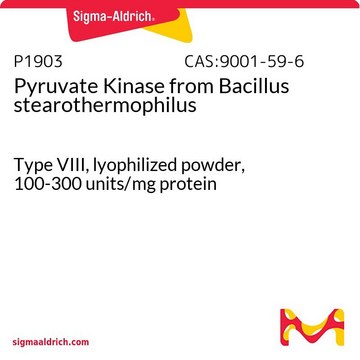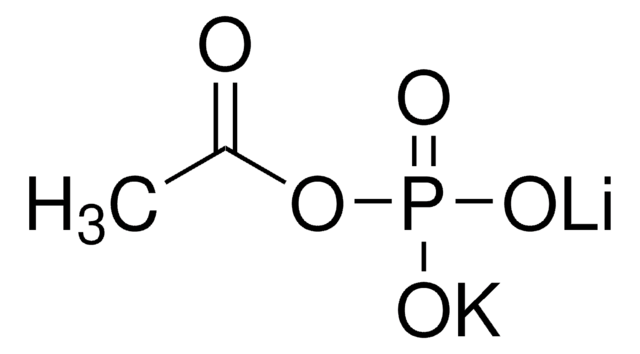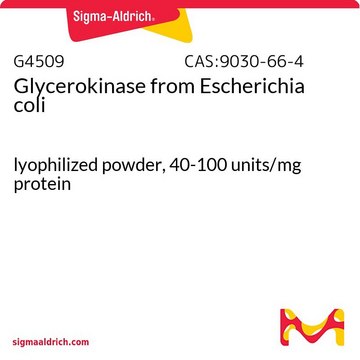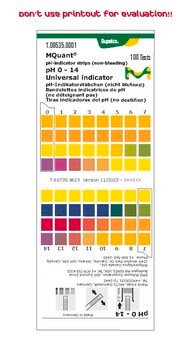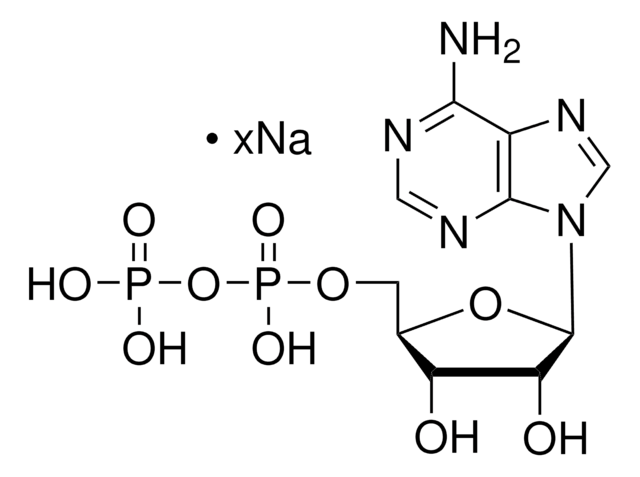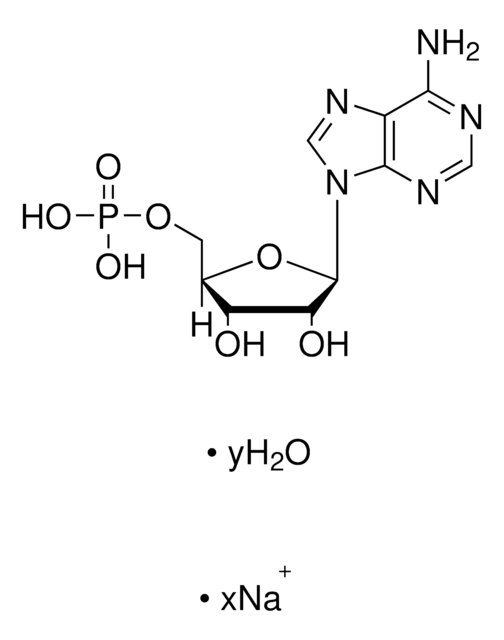A7437
Acetate Kinase from Escherichia coli
lyophilized powder, ≥150 units/mg protein (biuret)
Synonym(s):
ATP:Acetate phosphotransferase
About This Item
Recommended Products
form
lyophilized powder
Quality Level
specific activity
≥150 units/mg protein (biuret)
composition
Protein, 5.0-20.0%
UniProt accession no.
foreign activity
adenosine triphosphatase and NADH oxidase ≤0.01%
storage temp.
−20°C
Gene Information
Escherichia coli K12 ... ackA(946775)
Looking for similar products? Visit Product Comparison Guide
General description
Application
Biochem/physiol Actions
Unit Definition
Physical form
Storage Class Code
11 - Combustible Solids
WGK
WGK 3
Flash Point(F)
Not applicable
Flash Point(C)
Not applicable
Certificates of Analysis (COA)
Search for Certificates of Analysis (COA) by entering the products Lot/Batch Number. Lot and Batch Numbers can be found on a product’s label following the words ‘Lot’ or ‘Batch’.
Already Own This Product?
Find documentation for the products that you have recently purchased in the Document Library.
Customers Also Viewed
Our team of scientists has experience in all areas of research including Life Science, Material Science, Chemical Synthesis, Chromatography, Analytical and many others.
Contact Technical Service

